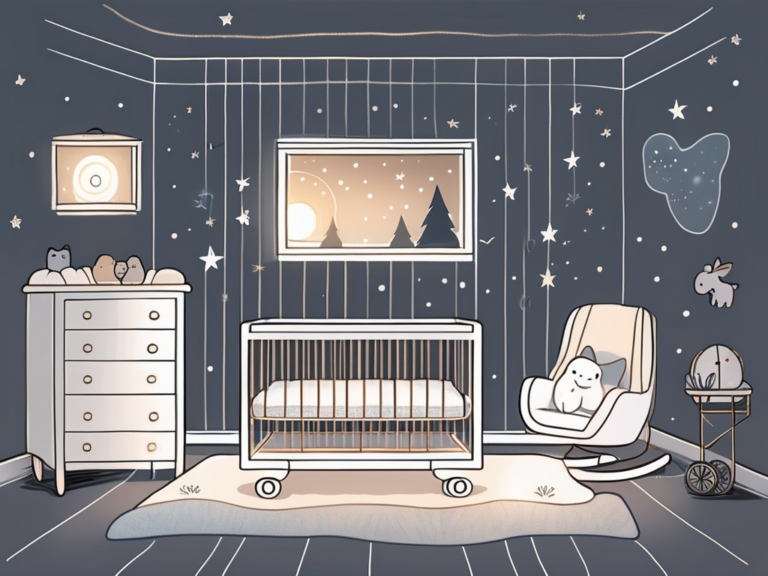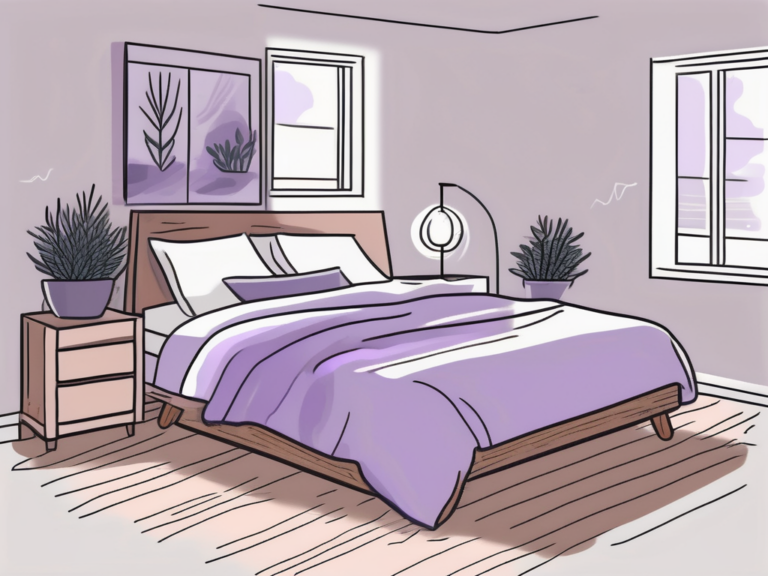9 Tips on How to Sleep Better
Sleep is an essential aspect of our overall health and well-being. It is during sleep that our bodies recover, repair, and rejuvenate. However, many people struggle to get quality sleep due to various factors such as stress, an unhealthy lifestyle, or an unsuitable sleep environment. In this article, we will explore nine tips on how to sleep better, providing you with actionable steps to improve your sleep quality and wake up feeling refreshed and revitalized.
Understanding the Importance of Good Sleep
Before diving into the tips, it is important to grasp the significance of quality sleep. Sleep is not merely a luxury, but a necessity for our bodies to function optimally. The science behind sleep reveals that it plays a crucial role in memory consolidation, hormone regulation, immune system functioning, and overall cognitive abilities. Without enough sleep, we may experience a decline in focus, mood swings, weakened immune responses, and heightened stress levels. This understanding underscores the importance of prioritizing quality sleep in our lives.
The Science Behind Sleep
Scientifically, sleep can be divided into two distinct stages: REM (Rapid Eye Movement) sleep and non-REM sleep. During REM sleep, our brain activity intensifies and resembles that of being awake, while non-REM sleep consists of three stages that progressively deepen our sleep. Both these stages are essential for our physical and mental well-being.
Why Quality Sleep Matters
Quality sleep allows our bodies to repair and restore themselves. During deep sleep, growth hormones are released, aiding in tissue and muscle repair. Additionally, sleep plays a critical role in consolidating memories and facilitating learning processes. It also impacts our emotional regulation, with insufficient sleep often leading to irritability, mood swings, and reduced ability to handle stress. Recognizing the importance of quality sleep motivates us to invest in habits and routines that optimize our sleep patterns.
Furthermore, the benefits of quality sleep extend beyond physical and mental well-being. Adequate sleep has been linked to improved creativity and problem-solving skills. When we give our brains the rest they need, we allow them to process information more efficiently and make connections that may have eluded us during waking hours. This is why many artists, writers, and innovators prioritize a good night’s sleep to enhance their creative output.
In addition, quality sleep has a direct impact on our overall appearance. Lack of sleep can lead to dark circles, puffy eyes, and a dull complexion. On the other hand, getting enough sleep can result in a radiant and refreshed appearance. This is because during sleep, our body’s natural healing processes are at work, repairing and rejuvenating our skin cells. So, if you want to look your best, ensuring you get enough quality sleep is essential.
Setting Up Your Sleep Environment
To create an ideal sleep environment, several factors need to be considered, including the right mattress and pillows, as well as controlling light and temperature.
When it comes to choosing the right mattress and pillows, it’s important to invest in high-quality options that can significantly contribute to better sleep. A good mattress should provide adequate support and comfort, aligning your spine while relieving pressure points. Imagine sinking into a cloud-like surface that gently cradles your body, allowing you to drift off into a peaceful slumber. Similarly, pillows should cater to your preferred sleeping position, whether you’re a back, side, or stomach sleeper. The right pillow can promote proper spinal alignment and reduce the risk of discomfort, ensuring that you wake up feeling refreshed and rejuvenated.
The Role of Light and Temperature
Creating a sleep-conducive environment involves not only choosing the right bedding but also controlling light and temperature. Light exposure before bed, especially the blue light emitted by electronic devices, can suppress melatonin production, making it harder to fall asleep. We live in a world where screens are an integral part of our daily lives, but it’s crucial to reduce screen time before bedtime to allow your body to prepare for sleep. Consider dimming the bedroom lights and engaging in relaxing activities such as reading a book or practicing gentle stretches to signal to your brain that it’s time to wind down.
Additionally, maintaining a cool temperature in your bedroom can have a significant impact on the quality of your sleep. Research suggests that a cool room, typically between 60 and 67 degrees Fahrenheit (15-19 degrees Celsius), promotes better sleep by facilitating the natural drop in core body temperature that induces drowsiness. Picture yourself snuggled up under a cozy blanket, feeling the gentle coolness of the air against your skin, as you drift off into dreamland. By creating a cool and comfortable sleep environment, you can enhance your sleep quality and wake up feeling more rested.
Establishing a Sleep Routine
Adopting a consistent sleep routine can train your body to recognize when it’s time to wind down and prepare for sleep. A structured routine can help regulate your body’s internal clock, making it easier to fall asleep and wake up at desired times.
The Power of Consistency
Going to bed and waking up at consistent times, even on weekends, can help regulate your body’s circadian rhythm. This rhythmic pattern orchestrates various biological processes, including sleep. Consistency reinforces this rhythm, allowing your body to anticipate and prepare for periods of rest.
Imagine your body as a finely tuned orchestra, with each instrument playing its part to create a harmonious melody. Just like a conductor guides the musicians to play in sync, consistency acts as the conductor of your body’s internal clock. By adhering to a regular sleep schedule, you provide the necessary cues to your body, signaling that it’s time to wind down and prepare for a peaceful slumber.
Moreover, consistency extends beyond the timing of sleep. It also encompasses the environment in which you sleep. Creating a sleep-friendly atmosphere can further enhance the power of consistency. Ensure your bedroom is cool, dark, and quiet, providing the ideal conditions for a restorative sleep. Consider investing in a comfortable mattress and pillows that support your body, allowing you to drift off into a blissful slumber.
Relaxation Techniques Before Bed
Engaging in relaxing activities before bed helps signal to your body that it’s time to wind down. Incorporate activities such as reading a book, taking a warm bath, practicing deep breathing exercises, or gentle stretching. These activities promote relaxation, reduce stress, and prepare your mind and body for a restful night’s sleep.
Imagine yourself sinking into a warm bubble bath, surrounded by the soothing scent of lavender. The warm water envelops your body, melting away the tension accumulated throughout the day. As you immerse yourself in a captivating book, your mind begins to drift away from the worries of the world, transporting you to a realm of tranquility. The gentle stretching exercises you perform release any residual tension in your muscles, allowing your body to fully unwind.
Deep breathing exercises become your secret weapon against the stresses of the day. With each inhale, you fill your lungs with rejuvenating oxygen, and with each exhale, you release any lingering worries or anxieties. The rhythmic pattern of your breath mirrors the rhythmic pattern of sleep, gently coaxing your body into a state of relaxation.
By incorporating these relaxation techniques into your bedtime routine, you create a sacred ritual that prepares your mind and body for a restful night’s sleep. As you engage in these activities, you send a clear message to your body that it’s time to let go of the day’s demands and embrace the tranquility of sleep.
The Impact of Diet on Sleep
While it’s common knowledge that what we eat affects our overall health, the impact of diet on sleep is often overlooked. Certain foods and beverages can either stimulate or inhibit quality sleep.
When it comes to promoting a good night’s sleep, it’s important to pay attention to the foods you consume. Including foods in your evening meals and snacks that contain tryptophan can be beneficial. Tryptophan is an amino acid that aids in the production of serotonin and melatonin, both of which regulate sleep. So, what are some foods rich in tryptophan? Look no further than turkey, chicken, nuts, seeds, bananas, and dark chocolate. These delicious options can provide you with the necessary dose of tryptophan to help you drift off into a peaceful slumber.
In addition to incorporating tryptophan-rich foods into your diet, it’s also important to consider other dietary factors that can support healthy sleep patterns. Whole grains and leafy greens, for example, are not only nutritious but can also provide essential vitamins and minerals that contribute to a restful night’s sleep. So, don’t forget to add some quinoa, brown rice, spinach, or kale to your plate to enhance the quality of your sleep.
While certain foods can promote sleep, there are also drinks that should be avoided before bedtime. Caffeine-containing drinks like coffee, tea, and energy drinks should be consumed in moderation or eliminated altogether in the evening. Caffeine is a stimulant that can interfere with falling asleep and disrupt the natural sleep-wake cycle. So, if you’re craving a warm beverage before bed, consider opting for a soothing herbal tea or a decaffeinated option instead.
Another drink to avoid close to bedtime is alcohol. While it may initially make you feel drowsy, alcohol can actually disrupt your sleep patterns and prevent you from experiencing a truly restorative sleep. So, it’s best to steer clear of that nightcap and opt for a glass of water or a calming herbal tea instead.
Exercise and Sleep Quality
Physical activity and sleep quality are closely intertwined. Regular exercise not only improves overall health but also has a positive impact on sleep patterns. When it comes to exercise and sleep, timing and the type of exercise play crucial roles in maximizing the benefits.
Best Time to Exercise for Good Sleep
Engaging in moderate aerobic exercise, such as brisk walking or jogging, can promote better sleep. However, it is advisable to finish exercising at least two hours before bed, as the increase in body temperature during exercise may hinder the process of falling asleep. This time gap allows the body to cool down and return to its normal temperature, signaling to the brain that it’s time to wind down and prepare for sleep.
It’s important to note that everyone’s body is different, and some individuals may find that exercising closer to bedtime doesn’t affect their sleep quality. Experimenting with different exercise times can help you determine what works best for you. Pay attention to how your body responds to exercise at different times of the day and adjust your routine accordingly.
Types of Exercise for Better Sleep
In addition to aerobic exercise, incorporating relaxation-focused activities, such as yoga or tai chi, can further enhance sleep quality. These activities calm the mind, reduce stress, and promote physical relaxation, preparing you for a deeper and more rejuvenating sleep.
Yoga, for example, combines gentle movements, stretching, and deep breathing exercises that help release tension in the body and quiet the mind. This combination of physical and mental relaxation can have a profound impact on sleep quality. Tai chi, on the other hand, is a low-impact exercise that focuses on slow, controlled movements and deep breathing. Its meditative nature promotes relaxation and can help alleviate anxiety and stress, leading to improved sleep.
When incorporating relaxation-focused activities into your exercise routine, it’s important to find a balance between physical exertion and mental relaxation. Striking this balance will help you reap the benefits of both the physical and mental aspects of exercise, enhancing your sleep quality and overall well-being.
The Role of Stress and Anxiety in Sleep
Excessive stress and anxiety can significantly disrupt sleep patterns. Understanding the relationship between stress and sleep is essential in finding effective strategies to alleviate their impact.
How Stress Affects Sleep
When confronted with stress, our bodies release cortisol, a hormone that can interfere with sleep. Stressful thoughts and worries can also result in an overactive mind, making it challenging to fall asleep or maintain sleep throughout the night. It is crucial to identify sources of stress in your life and develop coping mechanisms to minimize their impact on your sleep.
Anxiety-Reducing Techniques for Better Sleep
Implementing stress-management techniques can considerably improve sleep quality. Techniques such as deep breathing exercises, meditation, and journaling can help calm the mind and relax the body before sleep. Creating a peaceful bedtime routine that includes these activities can gradually reduce anxiety and promote more restful sleep.
Furthermore, it is important to note that stress and anxiety can have a significant impact on the physical health of an individual. Prolonged exposure to stress hormones can weaken the immune system, making individuals more susceptible to illnesses and infections. Additionally, chronic stress can lead to an increased risk of developing cardiovascular diseases, such as high blood pressure and heart disease.
Moreover, the effects of stress and anxiety on mental health cannot be overlooked. Research has shown that chronic stress can contribute to the development of mental health disorders, including depression and anxiety disorders. Lack of quality sleep due to stress and anxiety can exacerbate these conditions, creating a vicious cycle that is challenging to break.
The Influence of Technology on Sleep
In today’s digital age, we are increasingly reliant on technology, which can negatively impact our sleep if not managed effectively.
The Blue Light Effect
The blue light emitted by electronic devices such as smartphones, tablets, and computers can suppress the production of melatonin, making it harder to fall asleep. Minimize exposure to electronic devices at least an hour before bed to allow your mind to wind down naturally.
Tech-Free Time Before Bed
Establishing a tech-free time before bed can help you disconnect from the virtual world and create a calm environment conducive to sleep. Engage in relaxing activities, engage in conversations, read a book, or listen to soothing music instead of using electronic devices.
When to Seek Professional Help
While adopting healthy sleep practices can significantly improve sleep quality for most individuals, some may still face persistent sleep disturbances. In such cases, it is essential to recognize the signs of potential sleep disorders and seek professional guidance.
Recognizing Sleep Disorders
If you consistently struggle to fall asleep, stay asleep, or experience excessive daytime sleepiness despite implementing healthy sleep habits, it may be indicative of an underlying sleep disorder. These disorders range from insomnia and sleep apnea to restless leg syndrome and narcolepsy, among others. Consulting with a healthcare professional can help diagnose and treat any sleep disorder you may be facing.
Consulting with a Sleep Specialist
A sleep specialist can provide expertise in diagnosing and treating sleep disorders. Through diverse assessments, such as sleep studies, they can identify underlying causes and develop personalized treatment plans to optimize your sleep. Seeking professional help is crucial for individuals who experience persistent sleep disturbances or suspect they have a sleep disorder.
Conclusion: Prioritizing Sleep for Health and Well-being
Sleep is not a luxury we can afford to overlook. Prioritizing quality sleep is a vital aspect of maintaining optimal health, mental well-being, and cognitive performance. By implementing the tips discussed in this article, including creating a conducive sleep environment, establishing a consistent sleep routine, managing stress and anxiety, and striking a healthy balance with technology, you can embark on a journey to achieving better sleep and reaping the benefits it offers. Remember, investing in your sleep is investing in your overall well-being.






